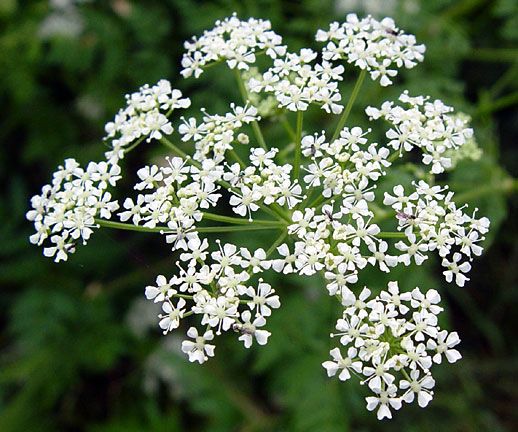Introduction:
Poison hemlock (Conium maculatum) is a highly poisonous plant found throughout the United States. It is often found in ditches, fields, and other disturbed areas. All parts of the plant are poisonous, but the seeds and roots are the most toxic. Hemlock poisoning can occur if the plant is ingested or if the sap comes into contact with the skin.

Hemlock poisoning is a serious medical condition that can be fatal. Symptoms of hemlock poisoning can appear anywhere from 30 minutes to several hours after exposure. If you suspect you or someone you know has been exposed to poison hemlock, it is important to seek medical attention immediately.
Symptoms of Hemlock Poisoning:
The symptoms of hemlock poisoning vary depending on the amount of plant material ingested and the individual's sensitivity to the toxins. Common symptoms include:
- Nausea and vomiting
- Diarrhea
- Abdominal pain
- Weakness
- Dizziness
- Dilated pupils
- Respiratory distress
- Seizures
- Coma
Treatment for Hemlock Poisoning:
There is no specific antidote for hemlock poisoning. Treatment focuses on supportive care and managing symptoms. If you suspect hemlock poisoning, call 911 immediately. Treatment may include:
- Inducing vomiting
- Administering activated charcoal to absorb the toxins
- Providing respiratory support
- Controlling seizures
- Monitoring vital signs
Prevention of Hemlock Poisoning:
The best way to prevent hemlock poisoning is to avoid contact with the plant. Learn to identify poison hemlock and teach children to stay away from it. Wear gloves when handling the plant and wash your hands thoroughly afterwards.
- Be aware of the plant's appearance and growing locations.
- Wear protective clothing, including gloves, when working in areas where poison hemlock may be present.
- Wash your hands thoroughly after contact with any part of the plant.
- Keep children and pets away from areas where poison hemlock grows.
Conclusion:
Poison hemlock is a dangerous plant that can cause serious health problems. It is important to be able to identify the plant and to take steps to prevent poisoning. If you suspect you or someone you know has been exposed to poison hemlock, seek medical attention immediately.





